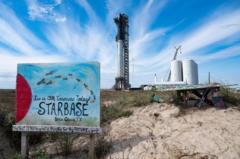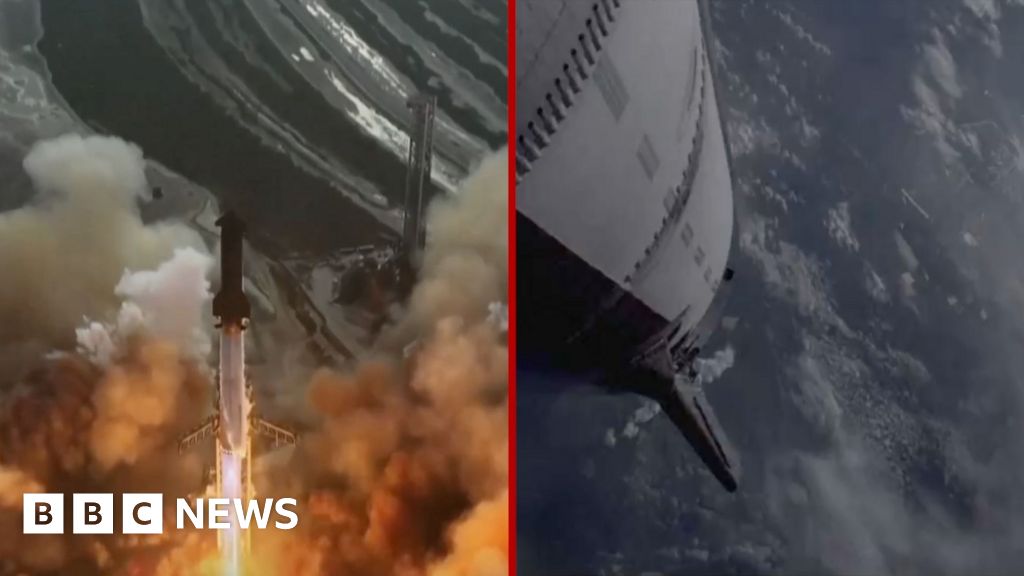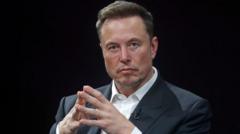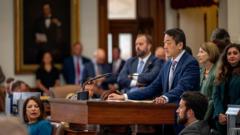The southern tip of Texas is now home to a newly instituted municipality named Starbase, rooted in the operations of Elon Musk's SpaceX company. Residents, predominantly employees of SpaceX, voted in favor of the incorporation during an election held on Saturday—the tally showed 212 votes for and only six against. Musk celebrated the designation on his social media platform, declaring, "Starbase, Texas is now a real city!"
The new city encompasses approximately 1.6 square miles (3.9 square kilometers), which was largely uninhabited prior to SpaceX's acquisition of the land starting in 2012. Governance will be structured around a mayor and two commissioners who will oversee planning, taxation, and other community-related issues. However, there has been opposition from adjacent residents, who assert the company has negatively impacted the local environment.
Since its arrival, SpaceX has developed company housing and facilities, with Musk's own residence situated in the vicinity. The area also features notable landmarks linked to Musk, including Memes Street and a bust of the billionaire, though the latter has faced vandalism. The neighborhood is home to around 500 residents.
Rumors about city incorporation had circulated for years until a petition initiated in December 2024 paved the way for the recent vote. Bobby Peden, a SpaceX vice-president, has been elected as Starbase’s first mayor, running unchallenged, alongside two other SpaceX-connected residents for commission seats. Starbase falls under the Type C designation—a classification for municipalities with a population of less than 5,000 that permits tax rates of up to 1.5%.
Legislation currently progressing through the Texas state legislature could empower Starbase officials to manage closures of local highways and restrict access to nearby Boca Chica Beach during significant rocket launch events. Presently, such closures are enforced by Cameron County, which includes Brownsville and South Padre Island.
SpaceX frequently conducts launches from its Starbase site and aims to ramp up from five to 25 launches annually. This expansion could lead to conflicts between local and county officials over access to Boca Chica Beach, with Cameron County Judge Eddie Trevino Jr. expressing concerns about the proposed bill.
Musk's corporate migrations from California to Texas reflect his preference for a regime with less regulatory interference, aligned with his critique of California’s political climate. This transition has established the headquarters of his companies, leading Musk to settle alongside emerging development sites outside of Austin, contrasting sharply with the housing presence in Starbase.
Environmental advocates have voiced their apprehensions regarding SpaceX’s influence, citing adverse effects on local wildlife and increased light pollution. In 2024, SpaceX was penalized nearly $150,000 by both the US Environmental Protection Agency and the Texas Commission on Environmental Quality for improper wastewater disposal, an issue the company downplayed as mere paperwork discrepancies, affirming its compliance with environmental standards.




















